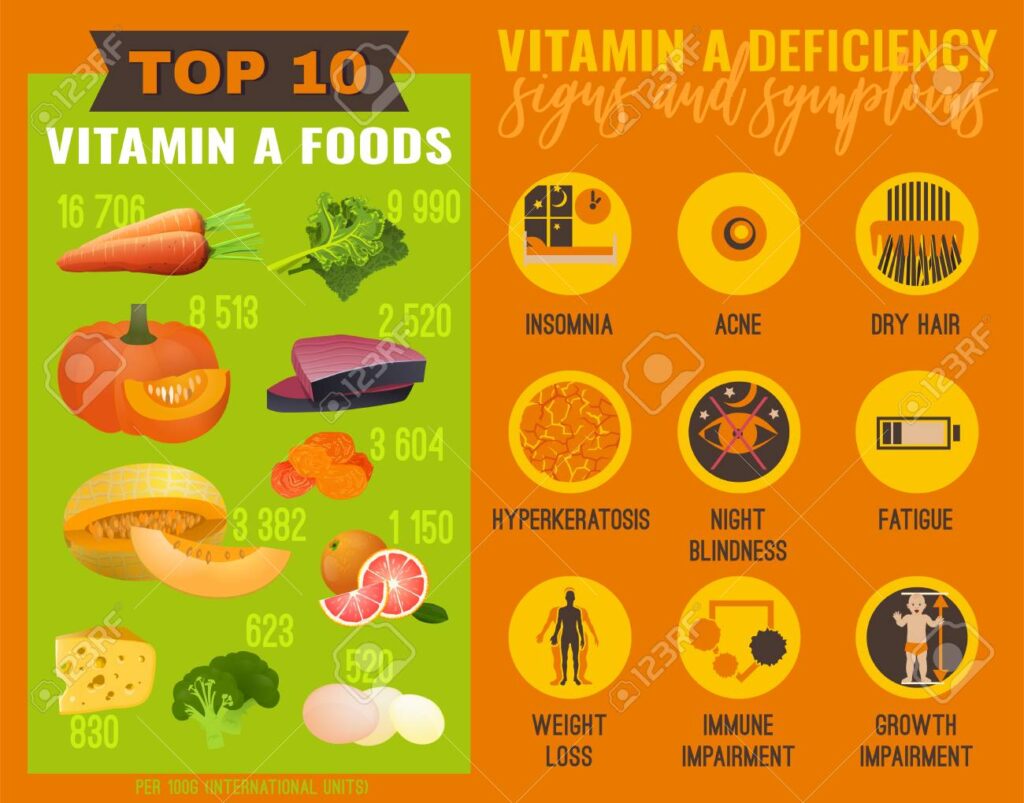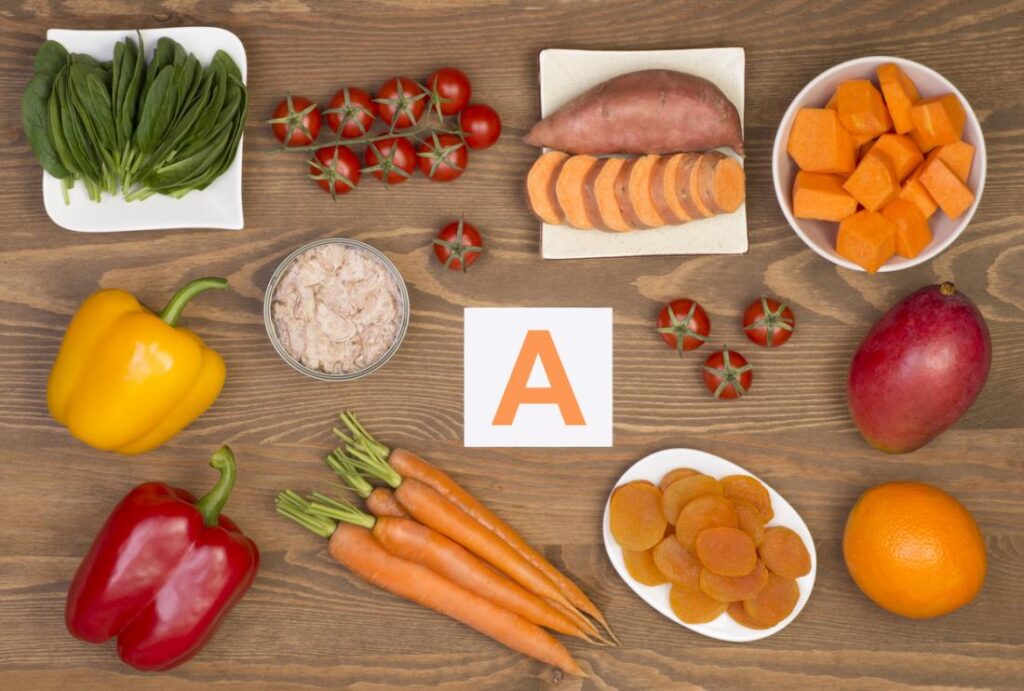For a stable and efficient function, our bodies demand a wide assortment of vitamins and minerals. Vitamin A, B, C and D are indispensable vitamins that keep our body healthy and fight diseases. Usually, the body absorbs these vitamins through foods we consume. However, with the growing fast and junk food culture, the essential vitamins are overlooked.
What Is Vitamin A?
It is a vital fat-soluble mineral typically stored within the liver. The standard requirements for this vitamin can be met by consuming various vegetarian and non-vegetarian foods.
Deficiency of Vitamin A induces:
- hair loss
- skin problems
- dry eyes
- night blindness
- increased susceptibility to infections

Advantages of eating Vitamin A:
- Improves Eye Health
- Boosts Immunity
- Fights Acne
- Improves Bone Health
- Enhances Reproductive Health
- Lowes cancer risk
- Helps in the Treatment of type 2 diabetes
- Promotes healthy skin and hair
Following are the natural reservoirs of Vitamin A one can easily find in the kitchen and markets:
Herring (Hilsa Fish)
An 80-gram portion of herring gives 219 micrograms of vitamin A or 15 per cent of a person’s DV (Daily Value). As a fatty fish, a herring is an outstanding choice for those who desire to enhance their omega-3 supplement for heart and brain health; it is abundant in protein and vitamin D as well.
Sweet potato
A single sweet potato, along with its skin renders about 1,400 micrograms of vitamin A, which is 561 per cent of the daily value.
The vitamin A found in this food is in the design of beta carotene. There are certain studies proposing that it may shield against colon cancer and prostate cancer.
Carrots
They are loaded with beta-carotene; merely half-a-cup of fibrous carrots includes about 458 micrograms of vitamin A and 183 per cent of the Daily Value.
It carries 26 calories in each serving; carrots sum up a scrumptious and wholesome snack. They are also prosperous in dietary fiber. This can aid counteracting constipation and support healthier gut health.
Black-eyed peas
These pulses are an enormous reservoir of plant-derived protein. Moreover, these are abundant in fiber as well.
The beans are a reliable reservoir of iron as well. They also decrease the uncertainty of heart disorder, and other illnesses like stroke, high blood pressure, furthermore type 2 diabetes.
Broccoli
Broccoli is one of the most wholesome reservoirs of vitamin A, with half-a-cup serving giving 60 microgram, which is about 23 per cent of a person’s Daily Value. A portion of broccoli comprises merely 27 calories. Moreover, it is an exceptional reservoir of Vitamin K and C.

Sweet red pepper
Half-a-cup of uncooked bell pepper contributes to about 116 micrograms of vitamin A. Standing about 46 per cent of the Daily Value. The portion includes 19 calories and is loaded with vitamin B-6, vitamin C, and folate.
Mango
An entire, raw mango incorporates 112 micrograms of vitamin A or 45 per cent of the Daily Value.
They are plentiful in antioxidants. They also contain dietary fiber. In turn, it provides healthier stomach functioning and blood sugar regulation.
Cantaloupe melon
A mere half-a-cup of melon offers 135 micrograms of vitamin A, summing upto 54 per cent of the Daily Value.
It is an excellent reservoir of vitamin C. It promotes immune functioning and guards against numerous illnesses.
Tomatoes
A 3/4 cup portion of tomato extract carries about 40 micrograms of vitamin A, summing upto about 15 per cent of the Daily Value.
They are also loaded with Lycopene and Vitamin C, the best antioxidants.
The best alternative to assure a balanced nutrient consumption is to eat a diverse and balanced diet, plenty of fruits, vegetables, whole grains, healthful fats, and lean proteins. Those mentioned above are a few natural reservoirs of Vitamin A that will help you maintain a healthy lifestyle without being heavy on the pockets.







